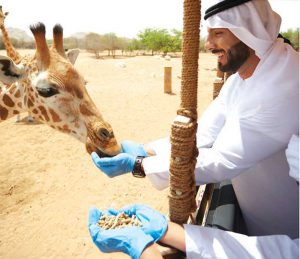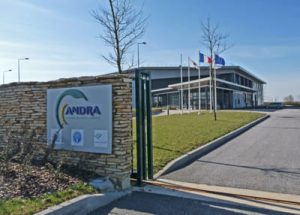‘Enhancing ecological sustainability through plant-based animal sustenance at the Al Ain Zoo’

Al Ain Zoo Cultivates Plant-Based Sustenance for Animal Residents
Al Ain Zoo has taken a proactive approach to sustainability by growing 211.2 tonnes of plant-based sustenance annually. The zoo operates a dedicated nursery where a variety of animal food plants, both local and non-local species such as Sidr, Ghaf, and Hibiscus, are cultivated. This initiative not only ensures a consistent food supply for the animals but also helps in reducing the ecological footprint of the zoo.
The selection of plants is carefully curated to meet the nutritional, behavioral, and environmental needs of the diverse animal residents at the zoo. A diet review team evaluates factors such as growth stages, reproductive states, and overall health to determine the best plants for each animal. While some animals thrive on plant-based diets, others, like carnivores, primates, and reptiles, receive carefully formulated compound feed to meet their specific nutritional requirements.
In addition to supporting the wellbeing of the animals in its care, Al Ain Zoo also plays a crucial role in nature conservation and wildlife protection. The zoo focuses on safeguarding local species, and its internal food production contributes to the preservation and enhancement of plant diversity. By sharing their expertise and plants with external partners and institutions, the zoo fosters biodiversity and collaboration in conservation efforts.
Through its collaborative approach, the zoo is committed to advancing conservation and promoting ecological sustainability. By managing resources efficiently and promoting self-sufficiency, Al Ain Zoo ensures the animals receive tailored diets and supports breeding efforts for endangered species. Furthermore, the zoo’s dedication extends to creating green spaces within the zoo and across Al Ain, enhancing the overall ecosystem and promoting a vision for a thriving environment.





